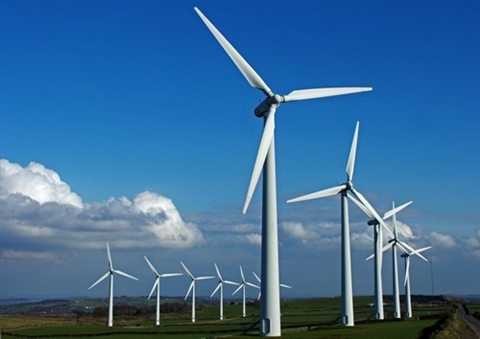Michelin leads the smart mobility revolution with data and AI
Michelin is undergoing a strong transformation by applying AI and smart analytic, helping lead the smart, safe, and sustainable mobility revolution in the Industry 4.0 era.




The Australian Anti-Dumping Commission (ADC) has reached decision to postpose anti-dumping duty on Vietnam's wind towers as there appear unsufficient grounds to prove that the goods exported to Australia have been dumped as well as are causing injury to the Australian industry.

The preliminary anti-dumping duty calculated by ADC for Viet Nam’s wind tower exports is intended to impose at 15.7 per cent.
The Vietnam Competition Authority under the Ministry of Industry and Trade said that on August 07, ADC published the Status Report No. D60REP 405 saying that it has not yet imposed anti-dumping duty on the goods [wind tower] exported from Viet Nam.
After initiation of the investigation at 60 days, reviewing applicants’ submissions and responses to importer and exporter questionnaires, ADC found unable to determine that there appear to be sufficient grounds to establish that: the goods exported to Australia have been dumped and dumped goods are causing material injury to the Australian industry.
However, ADC will reconsider whether to make a preliminary affirmative determinations at least once prior to the publication of the Statement of Essential Facts (SEF). The SEF is due to be published on 26 September 2017.
The applicants are Ottoway Fabrication Pty Ltd and Keppel Prince Engineering Pty Ltd. Investigation period for dumping is from January 01, 2015 to December 31, 2016. Injury examination period is from January 01, 2013.
The ADC is currently considering information provided by two participating importers who imported the goods from Vietnam during the investigation period 1 and the only cooperating exporter (CS Wind Vietnam). Expectedly, inspectors from ADC will carry out a direct investigation with Vietnamese exporter from August 16 to 18.
Viet Nam’s exports are facing difficulties due to anti-dumping duties imposed by importing countries, especially EU and US. Recently, US has applied its inspection program on 100% pangasius (a type of catfish) or imposed a rising anti-dumping duty on shrimp imported from Viet Nam, threatening the seafood exports of Viet Nam.
Anti-dumping regulations are the most widely applied as protection measure by importing countries. Therefore, Vietnamese exporters must study thoroughly the anti-dumping policies applied by the main importing markets of Vietnam for timely, appropriate and effective response measures to prevent Vietnam's exports from losses and damages.
Michelin is undergoing a strong transformation by applying AI and smart analytic, helping lead the smart, safe, and sustainable mobility revolution in the Industry 4.0 era.
LG Innotek Vietnam Hai Phong secured a $200 million IFC loan as revenue slows, aiming to expand camera module production while meeting sustainability targets.
For Koen Soenens, Sales and Marketing Director at DEEP C, empathy is a compass that guides major deals, the way a leader builds a team, and the ambition to create a sustainable industrial zone that carries a Vietnamese identity.
Taseco Land has shifted its listing to HOSE and introduced a new upward-pointing arrow logo - a visual statement of its strategy to raise capital, expand its land bank, and strengthen its standing in Vietnam’s real estate sector
Located in the heart of Ho Chi Minh City, SAP Labs Vietnam is the second SAP Labs Network hub in Southeast Asia, following Singapore and is one of 20 countries that have SAP Labs globally.
Solar & Storage Live Vietnam event has been running since 2017 and the 2025 edition will be the biggest yet.